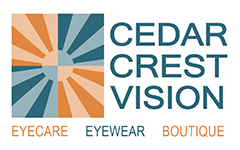PATIENTS
New Patient Forms
Download Patient Forms below:

RETINAL HEALTH SCREENING TESTS
We offer the most advanced technology to help our patients safeguard their eye health. As a part of your eye exam, we recommend the Optomap digital retinal photography to provide an ultra-widefield view of the retina (back of the eye), and a macular pigment optical density (MPOD) measurement to screen for age-related macular degeneration (AMD). Though insurance does not pay for these tests, we strongly encourage you to take this opportunity to identify key risk factors for AMD and other serious eye diseases such as diabetic retinopathy, glaucoma, macular edema, etc.
OPTOMAP RETINAL PHOTOGRAPHY
- Allows detailed view of the retinal layers (where diseases can start) to facilitate detection of retinal disease, and can aid in early detection of life-threatening diseases like cancer, stroke and cardiovascular disease.
- Combines retinal photography with computerized imaging for instant viewing.
- Testing is fast, easy and comfortable – no dilation drops required.
- The doctor may choose to dilate your pupils if there is a positive finding.
MACULAR PIGMENT OPTICAL DENSITY TEST (MPOD)
- Measures thickness of protective macular pigment in the retina. The denser the pigment, the more protection you have in place to preserve your vision.
- Identifies key risk factor for AMD (age-related macular degeneration). AMD is the leading cause of vision loss in the US affecting as many as 11 million people.
- Identifies the risk of harmful blue light damage. Macular pigment is the eye’s natural defense against harmful blue light from sources such as sunlight, energy efficient light bulbs (CFLs and LEDs) and digital flat screen TVs, computer, tablets, smartphones, etc.
- Who should have their MPOD tested?
- Patients over 30 years old.
- Patients with one or more AMD risk factors, such as family history of AMD, light-colored eyes and/or skin, low vegetable intake, current or former smoker, and females.
Our Cancellation Policy
 Scheduling services are the heart of our business and we schedule your service especially for you, with the understanding of the importance of your time. We strive for no, or very minimal waiting times for scheduled appointments. We will continue to notify our guests of their upcoming appointment times.
Scheduling services are the heart of our business and we schedule your service especially for you, with the understanding of the importance of your time. We strive for no, or very minimal waiting times for scheduled appointments. We will continue to notify our guests of their upcoming appointment times.
Please notify us at least 24 hours working time in advance if you are unable to keep your appointment. This courtesy allows someone else to be treated, a courtesy you would want if the circumstances were reversed. If you miss a scheduled appointment without 24 hours working time advance cancellation, you will be responsible for a $50.00 charge for the missed visit. You will not be rescheduled until the charge is paid in full.
Repeated missed appointments will require credit card information on file in order to reserve future appointment times or appointment privileges will be withdrawn. There are always unfortunate circumstances that occur which will result in a waiver of this fee. We have been forced to adopt this policy due to the lack of consideration of others.
FREQUENTLY ASKED QUESTIONS

How do I know if I have an eye problem?
Signs and symptoms of eye problems that need immediate attention include:
- sudden blurred vision
- sudden loss of vision
- sudden increase in floaters or flashes
- red eye
- discharge from the eye
- any eye injury
- eye pain
What exactly does "20/20 vision" mean?
By the way, visual acuity at a distance isn’t the only measure of how good your vision is. You could have 20/20 distance vision but still have difficulty seeing at night because of poor contrast sensitivity. Or you could have near vision problems because you’re over 40 and experiencing presbyopia.
How can over-wearing contact lenses affect my eyes?
What is the difference between soft contact lenses and hard (rigid gas permeable) lenses?
Can I wear contact lenses if I need bifocals?
Does Cedar Crest Vision offer contact lenses for patients with keratoconus and other corneal abnormalities?
How often should I have my eyes examined?
0-24 m by 6 months of age
2-5 yrs at 3-4 years of age
6-18 yrs by 1st grade, then every year
18-50 yrs every 1-2 years
51 yrs+ every year
However, different eye conditions will require different frequencies of follow-up so you should follow your optometrist’s recommendation since it is specific for your eyes and vision.
How does Dr. Quick determine which contact lens is right for me?
- Prescription
- Presence of astigmatism
- Presence of presbyopia
- Curvature of the eye
- Dimensions of the cornea
- Lid anatomy
- Tear film quality
- Intended use or purpose of the lens
